Trending
Opinion: How will Project 2025 impact game developers?
The Heritage Foundation's manifesto for the possible next administration could do great harm to many, including large portions of the game development community.

Featured Blog | This community-written post highlights the best of what the game industry has to offer. Read more like it on the Game Developer Blogs or learn how to Submit Your Own Blog Post
I never thought the day would come where I would passionately argue that fans should pirate my game rather than pay for it, but here we are.

I also blog at Fortress of Doors, follow my stuff here:
![]()
![]()
![]()
![]()
![]()
![]()
I never thought the day would come where I would passionately argue that fans should pirate my game rather than pay for it, but here we are.
That's conditional, of course. If you're going to be buying Defender's Quest from us then knock yourself out! But if you're going to buy it from a grey-market key reselling site like G2A, then, please, please, just pirate the game instead.
To be clear, I don't agree with or condone piracy. But I'm a realist, and piracy is so much less worse than buying from seedy online pawn shops like G2A. If you're not going to make the best choice, please don't dive straight into the worst choice.
But it's not just the worst deal for me, it's literally the worst deal for you the consumer, even if you don't give a fig about developers and publishers and just want to save a few bucks (I won't judge, I swear!).
Let me try to explain my position using the "Four Currencies" model, perhaps my most popular article of all time.
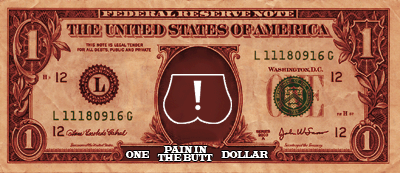
A summary of the "four currencies" theory is quoted here, feel free to skip if you're familiar:
I propose that music, movies, and games (like most goods and services) don't have just one price, but four1:
$M Money-dollars
$T Time-dollars
$P Pain-in-the-butt-dollars
$I Integrity-dollars
Through this lens, piracy is a competing "service" that costs zero $M, but has some non-zero $T and $P cost, not to mention the $I (integrity) cost associated with doing something that incurs legal risk and/or violates a person's moral code. Obviously the weight of the latter is subjective and varies from person to person, but it is a real cost that weighs just as greatly as the others.
1There's more than just four of these "psychological currencies", probably an infinite amount. These are simply the most salient for my purposes.
The bottom line:
People favor the product that charges the lowest total four-currency cost.
I'm not arguing that this is good, or right, or how-I-think-it-should-be. I'm simply arguing that this is how it is, and like it or not, we have to respond to these forces if we want to succeed in business.
If you need some background on this, this excellent rant by TotalBiscuit is a great place to start. This video, "Den of Thieves", is great too. And of course the spark that started this recent controversy was this eye-opening post from TinyBuild.
Back already? Let's continue.
In short, G2A is an "ebay for Steam Keys" where people can sell & trade their unused digital game store keys on the secondary market, which means you can get games for cheaper than normal price. Let's compare the total 4-currency costs of buying legitimately, buying from G2A, and "buying" from pirate sites (with one's non-money-dollars).
Buying a game legitimately looks like this to a typical consumer (Four-currency costs are always subjective and depend on the individual, so your weights may vary):
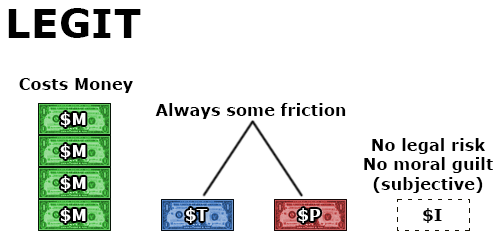
Digital storefronts have gotten pretty good at reducing purchasing friction, to the point where the main obstacle is just having money, not the time & hassle of signing up for accounts and downloading & installing stuff. The traditional edge that the legitimate store has is its low $I (integrity) cost -- there's no legal risk of getting in trouble by buying the real thing, and there's no associated moral guilt of doing something bad, though this guilt is only felt by those who care about such things.
Here's the Four-currency price that Piracy is "selling" the game for:
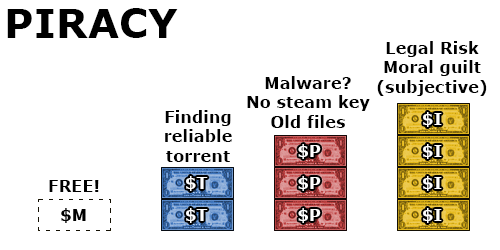
It's free, but if I'm being honest I find it faster & easier to buy a game on Steam or GOG these days than to try to find a good torrent and navigate the shady world of malware-infested sites to bother with piracy. And often pirated games are outdated or lack a convenient update mechanism. (Of course, veteran pirates can probably smooth the $T and $P costs down through practice). The biggest $P cost of piracy these days is you don't get a real steam key! What's funny about this is that a lot of modern players don't just want to play the game, they want it officially in their Steam account (or GOG, etc), with achievements and everything. Depending on the game you might also be forgoing multiplayer and other features. And of course, Piracy is "wrong." It's also technically illegal. Some people don't care about this, but as I argued in the original article, enough people care about $T, $P, and $I, that lowering those costs is enough to tip them over the edge and give you their $M for a legit copy.
And this is precisely what makes G2A so insidious. The (relatively) high friction of piracy, and decades of demonizing industry propaganda against it, have given G2A a golden opportunity to masquerade as a store that outcompetes the legitimate service on all four currency costs:
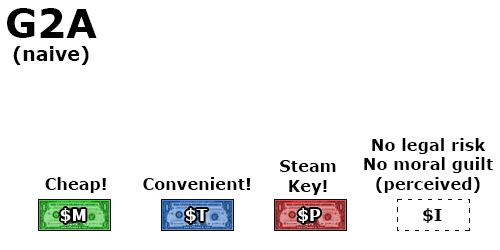
G2A offers the game for a lower price, it's just as fast and convenient as Steam (complete with a slick, safe-looking website), and you get a real, honest-to-Gabe steam key! G2A presents themselves as an innocent second-hand store, akin to eBay or Craigslist. You buy stuff on eBay and Craigslist, right? Right of first sale and all that. Furthermore, G2A goes way, way, out of their way to build legitimacy, too, which is what keeps their $I cost down in the eyes of their customers. Not only do they sponsor esports teams and major Youtubers (PewDiePie's sponsor can't be bad!), they also run Charity drives and other events:
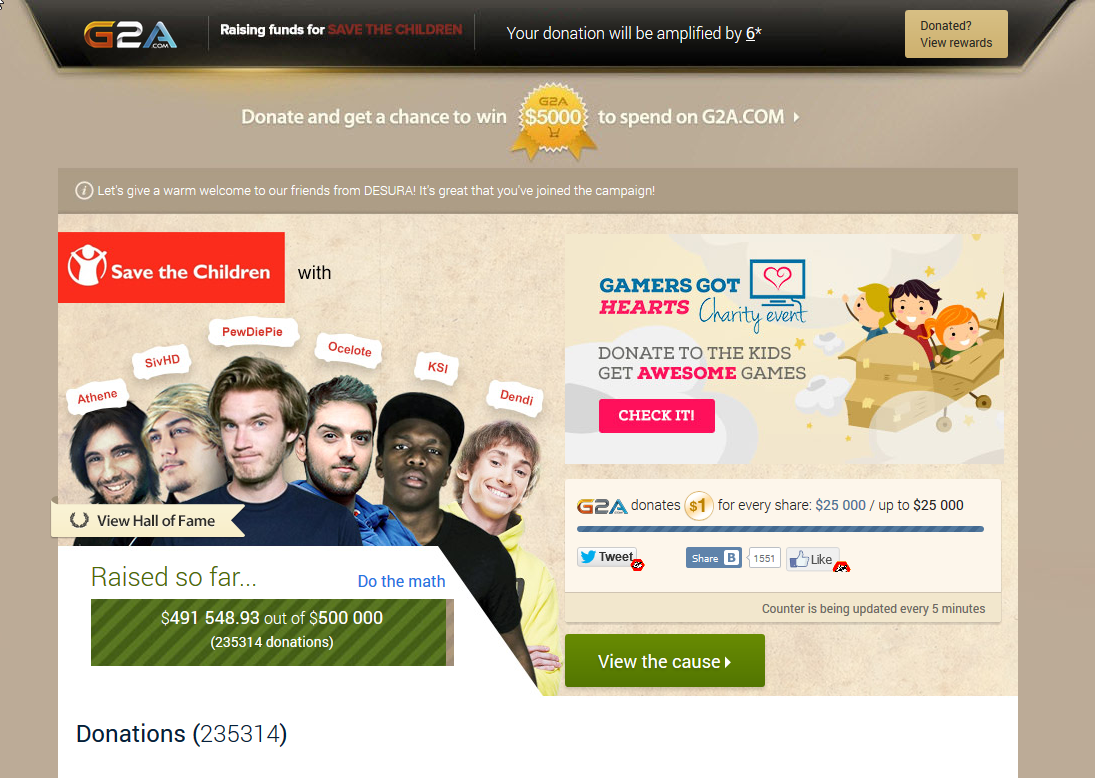
Save the Children -- with stolen goods and laundered money!
...
Here's what's really going on:
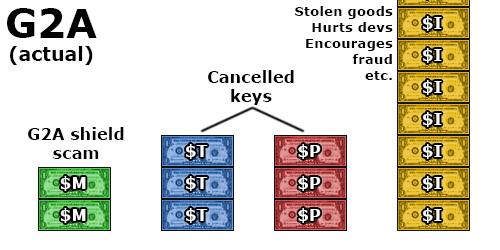
When you buy a key on G2A, a lot of the time you're buying a Steam Key somebody bought with a stolen credit card. When the cardholder inevitably finds out, they issue a chargeback and the credit card company refunds them, taking the money from the store (plus a fee), and giving it to the fraud victim. This means the store (or developer if they're selling direct) made negative money on the sale of that key, as TinyBuild and IndieGameStand have detailed. However, the thief still got paid. And so did G2A. So they do it again. And Again.
When you buy stolen G2A keys, forget "lost future sales" -- money is being taken out of developers' and publishers' pockets and given to literal thieves.
And what happens when you buy stolen goods? Sometimes the stores are able to track which keys have been fraudulently obtained, and they cancel them. So you just saved $10 by buying a game from G2A, but now your key's been revoked and you have nothing. Now G2A has defrauded you too! And no, they won't refund your money.
...Unless you pay for G2A shield!
G2A knows that some portion of their keys are stolen and that customers will get scared. So, they offer a guarantee -- tack on a little extra, and if your key gets revoked, we'll replace it with a legitimate one. And hey, it's still cheaper than buying from the official store, so it's still a good deal!
But when you look at the whole picture, it's clear that something's rotten.
G2A wants you to make this comparison:
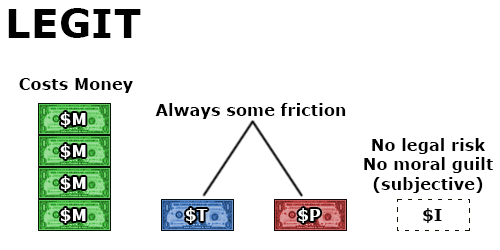
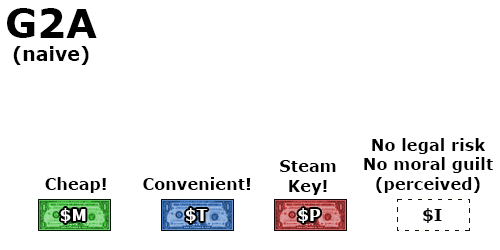
When you should be making this comparison:
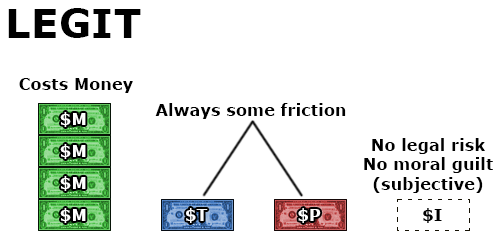
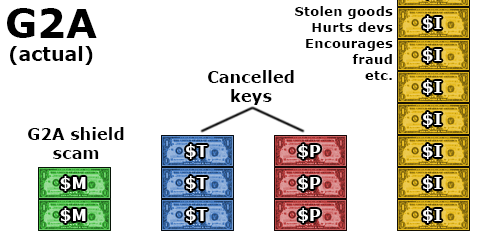
And if I'm being totally honest, if you don't want to give me any money, I'd rather you do yourself a favor and just make this comparison:
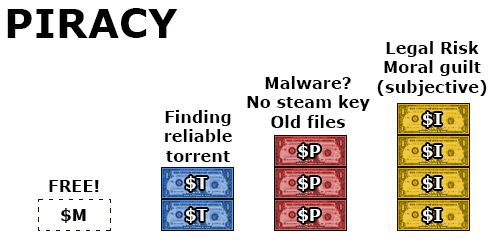
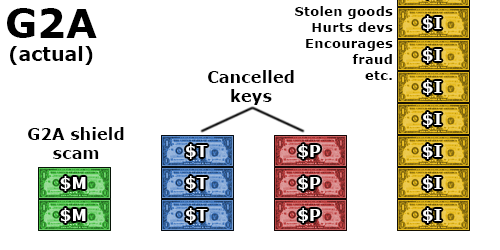
A lot of people like to say "Piracy is theft." It's not. It's an infringement of my legal monopoly right to control the distribution of my work for a limited period of time (aka "Copyright.")
Piracy is not theft.
G2A is theft.
If you have to choose between them:
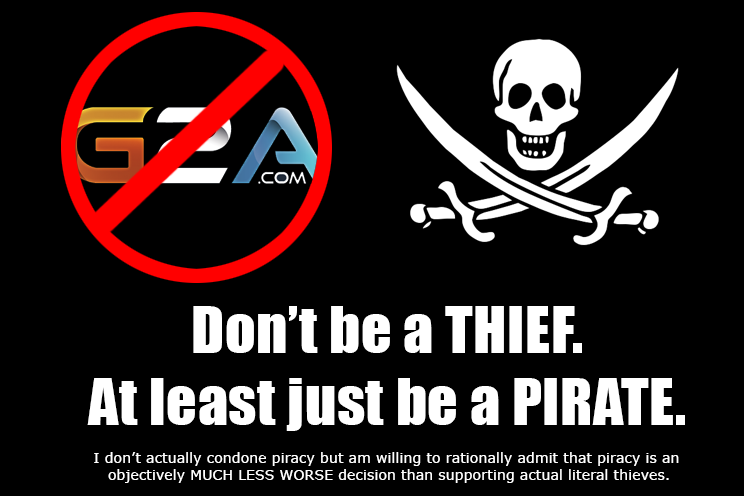
Or just, you know, buy our game. It's really good, I promise you'll get your four currencies' worth:
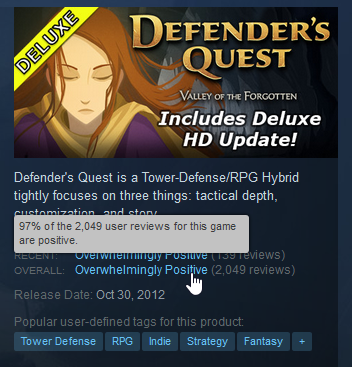
EDIT: To be extremely crystal clear, I am not really bothered by 3rd-party key resellers who do not traffic in stolen goods. If they're just exploiting arbitrage, I got paid for that first sale and a key can only be redeemed once, anyway, so I don't really care. But I do care about fraud, theft, and chargebacks.
EDIT 2: G2A's defenders keep coming back with:
"a majority of the keys aren't stolen so it's ok!"
"it's not their fault, everyone has fraud!"
"there's nothing they can do!"
Right now on G2A there are users who have hundreds or thousands of negative feedbacks for selling broken keys (ie most likely stolen) and yet they remain top rated. Not low-scoring. Certainly not BANNED. Top-rated. They literally aren't even TRYING, this is such low-hanging fruit. Sell enough bad keys and your reputation & account should get trashed.
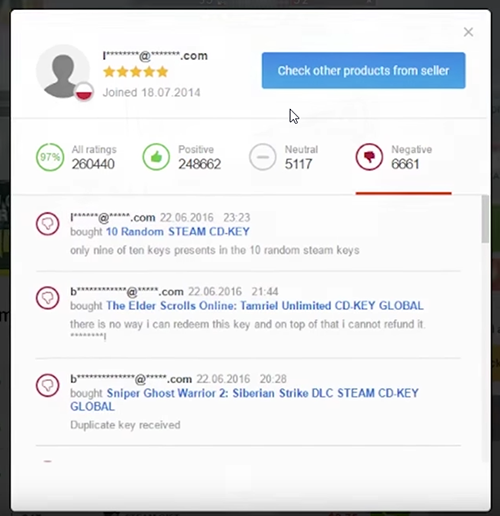
Source: https://www.youtube.com/watch?v=mBakPg6x63Q&feature=youtu.be&t=409
Read more about:
Featured BlogsYou May Also Like